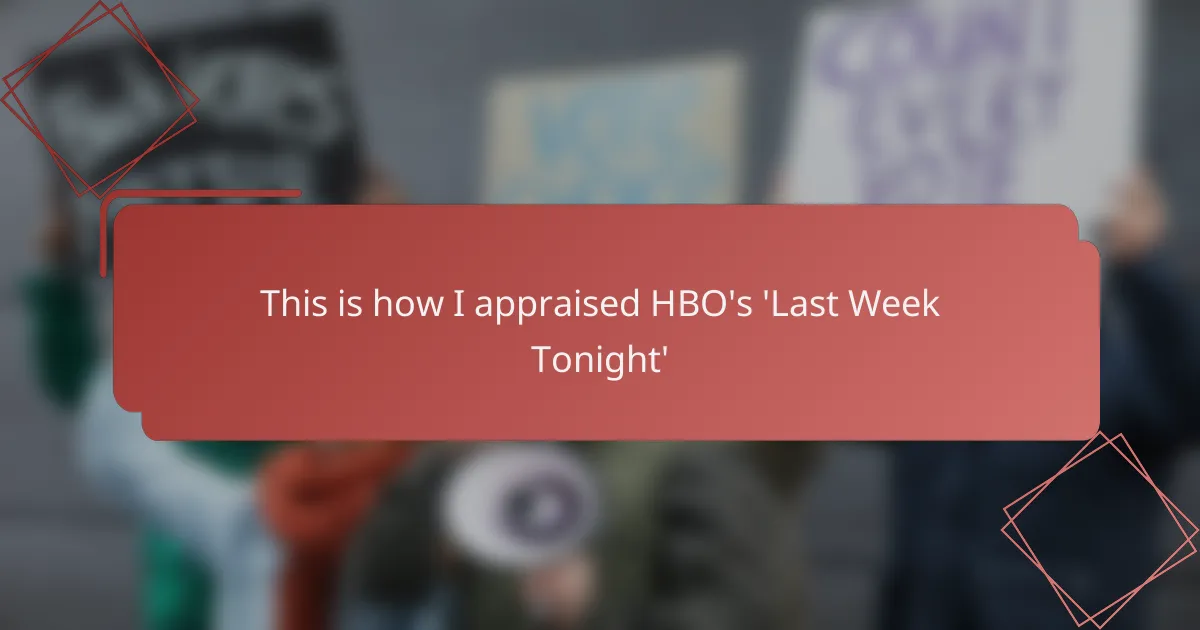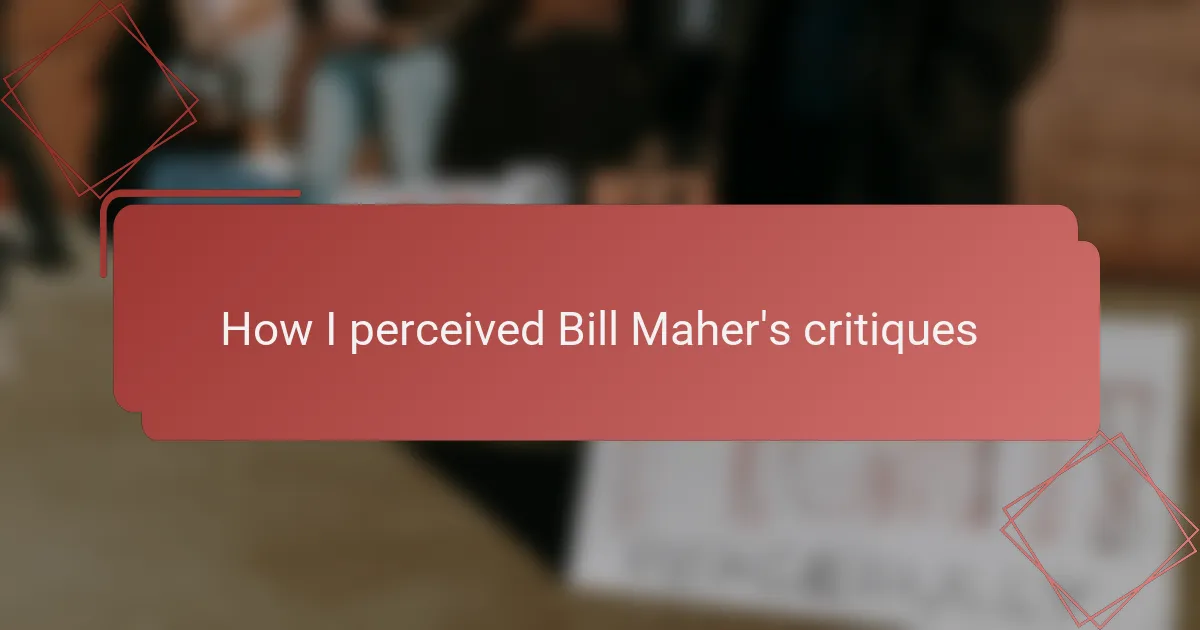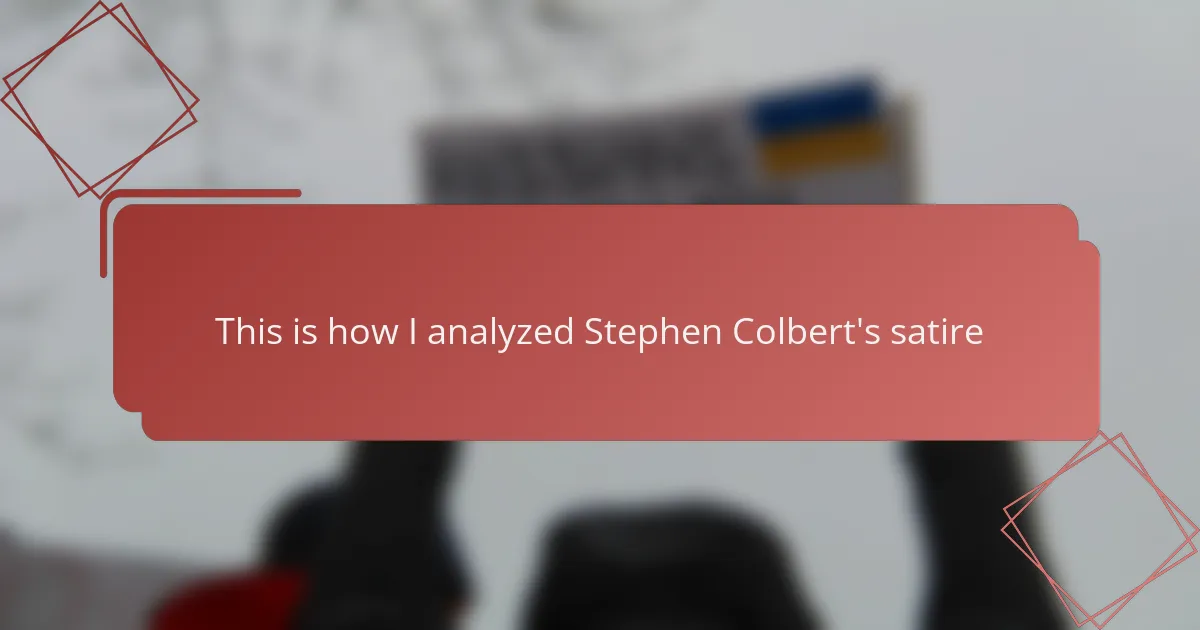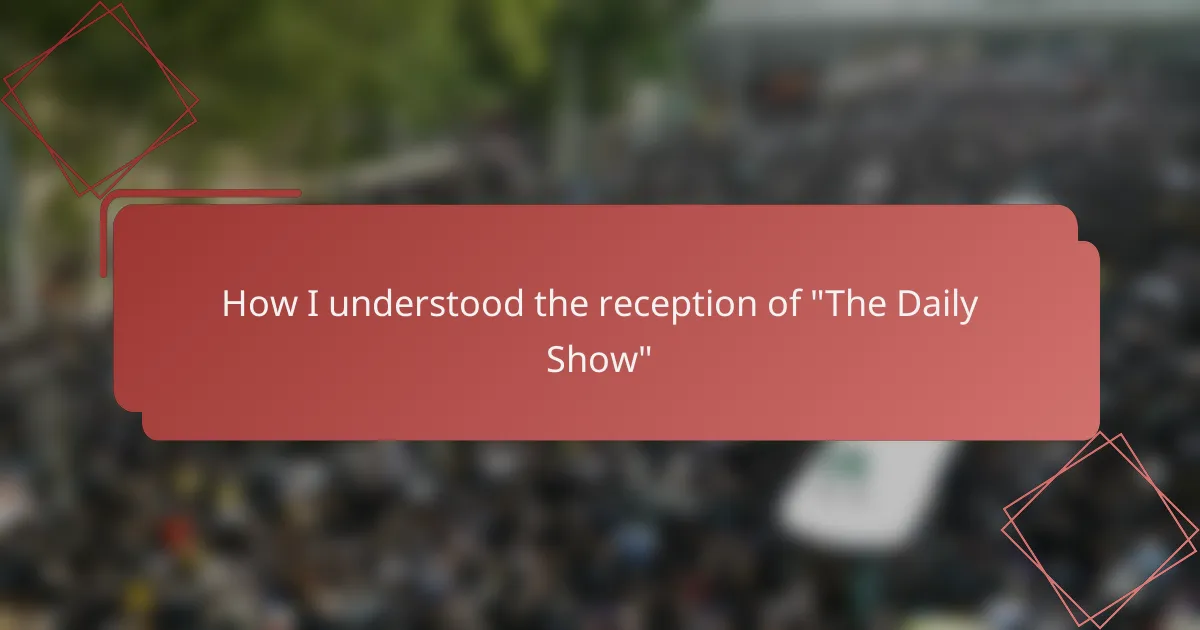Key takeaways
- Political satire, exemplified by shows like Last Week Tonight, uses humor to expose social issues and stimulate critical thinking.
- Key elements include humor, irony, exaggeration, and insightful commentary that make complex topics accessible and engaging.
- The show’s political impact extends beyond entertainment, inspiring public discourse and encouraging civic engagement.
- Effective humor cleverly balances serious topics with sharp wit, leaving viewers both entertained and enlightened.
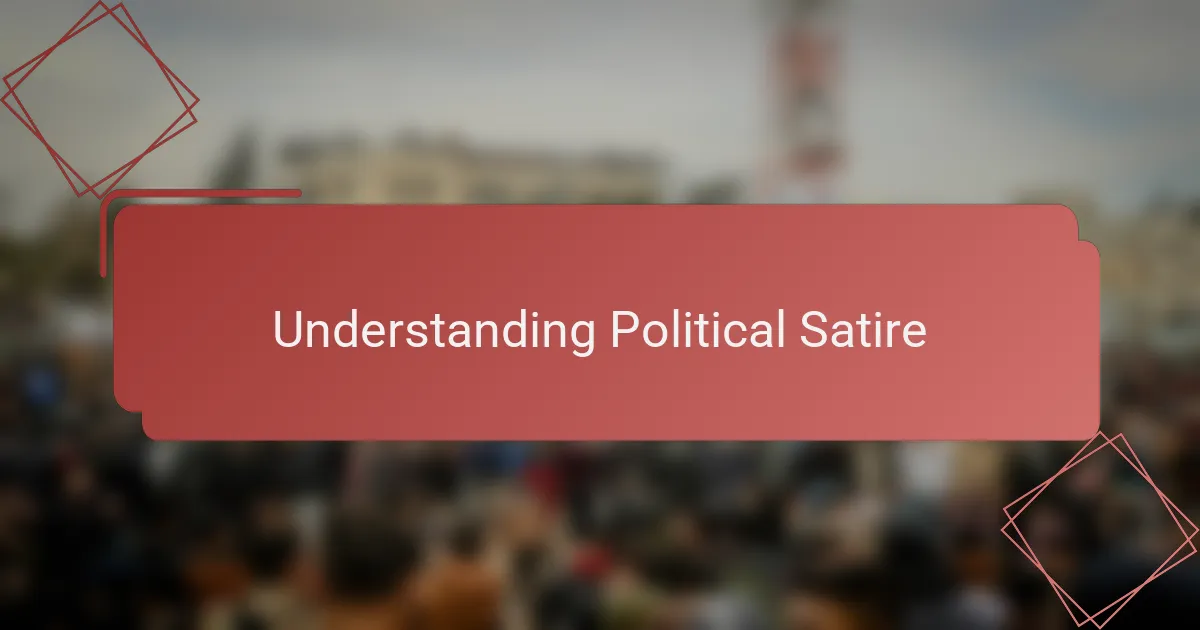
Understanding Political Satire
Political satire works by holding a mirror up to society, reflecting its flaws with humor and sharp wit. In my experience, shows like HBO’s Last Week Tonight don’t just make me laugh—they make me think deeply about the layers behind the headlines. When satire is done well, it’s like a clever puzzle revealing uncomfortable truths in a way that feels both entertaining and enlightening.
I remember the first time I saw an episode dissect a complicated political scandal with jokes that cut right to the heart of the issue. It felt empowering, as if I suddenly had a better grasp on the chaos around me. Political satire, to me, isn’t just about laughs—it’s about awakening critical thinking through humor.
- Uses humor to expose political and social issues
- Employs irony, exaggeration, and parody to make points
- Encourages viewers to question authority and mainstream narratives
- Simplifies complex political topics for broader understanding
- Fosters a sense of community among those who appreciate critical, comedic commentary
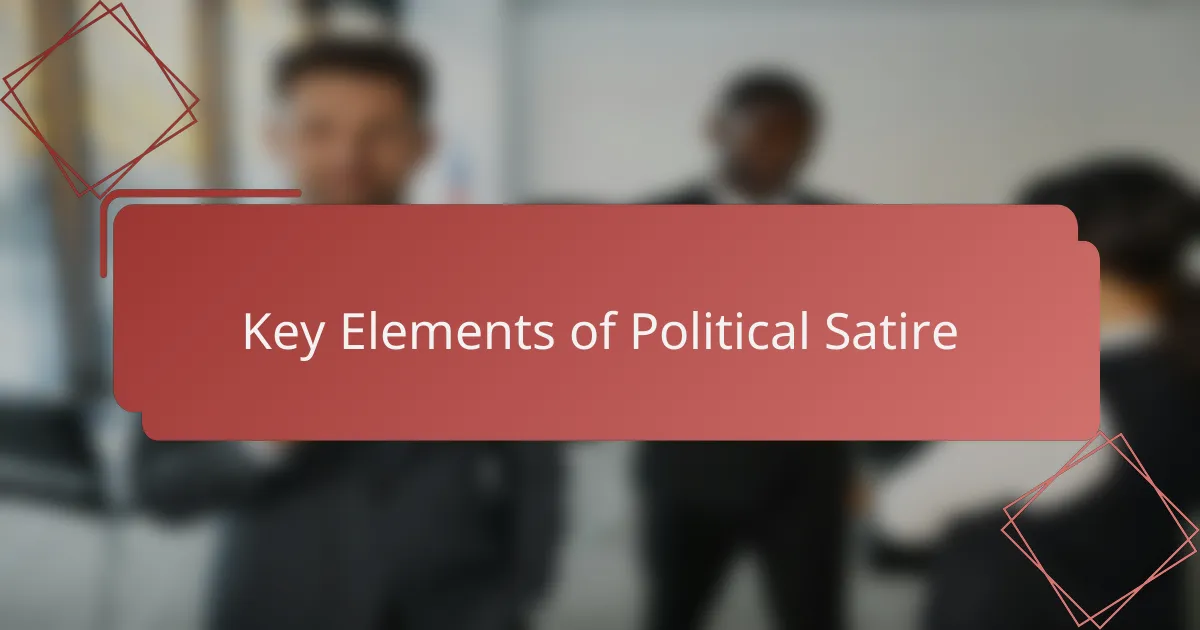
Key Elements of Political Satire
| Element | Explanation |
|---|---|
| Humor | Humor is the heartbeat of political satire, making complex or dry political issues accessible and engaging. From my experience watching “Last Week Tonight,” the clever jokes disarm viewers and prompt reflection without feeling preachy. |
| Irony | Irony reveals contradictions between political rhetoric and reality. I recall an episode where John Oliver’s sharp irony exposed hypocrisy, leaving me both amused and frustrated at the same time. |
| Exaggeration | Exaggeration amplifies flaws or absurdities in politics to highlight their significance. This technique kept me hooked as it transformed mundane news into strikingly vivid critiques. |
| Insightful Commentary | More than jokes, the show provides insightful analysis that deepens understanding. I appreciate how it blends humor with thorough research, making the satire both entertaining and enlightening. |
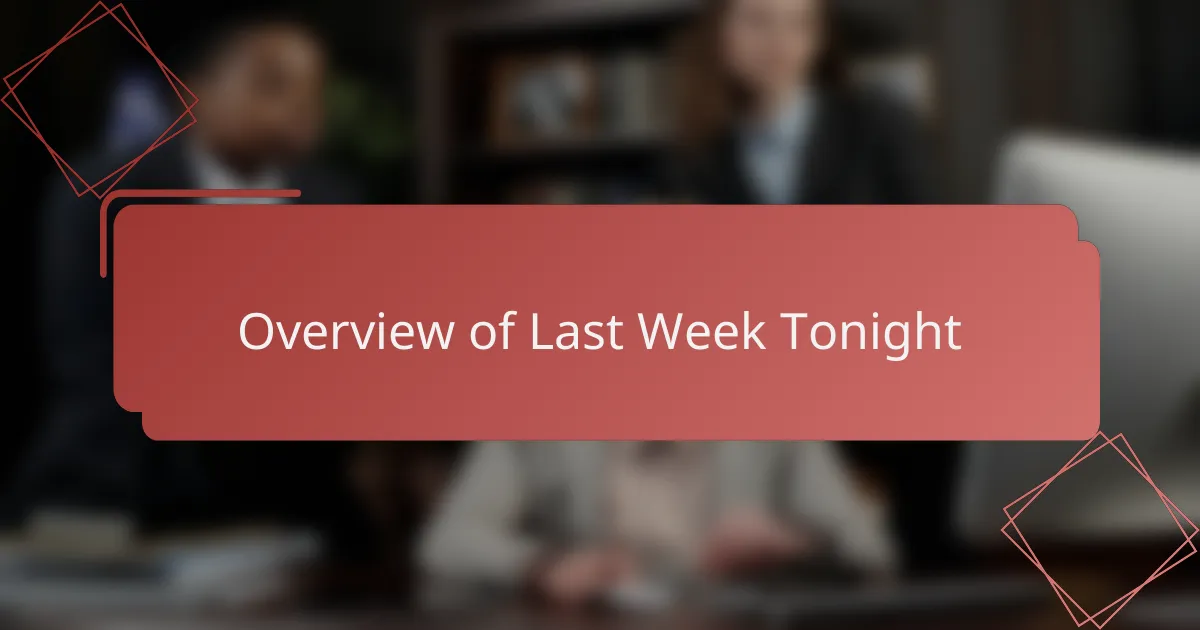
Overview of Last Week Tonight
Last Week Tonight is a political satire show hosted by John Oliver, known for its deep dives into current events and social issues. What I appreciate most is how it mixes humor with thorough research, making complex topics accessible and engaging. Watching it often feels like having a smart conversation with a witty friend who truly cares about the issues.
| Aspect | Description |
|---|---|
| Host | John Oliver |
| Format | Weekly 30-minute episodes |
| Content | Political satire blended with investigative journalism |
| Style | Humorous, insightful, and often emotional |
| Impact | Influences public discourse and highlights overlooked issues |
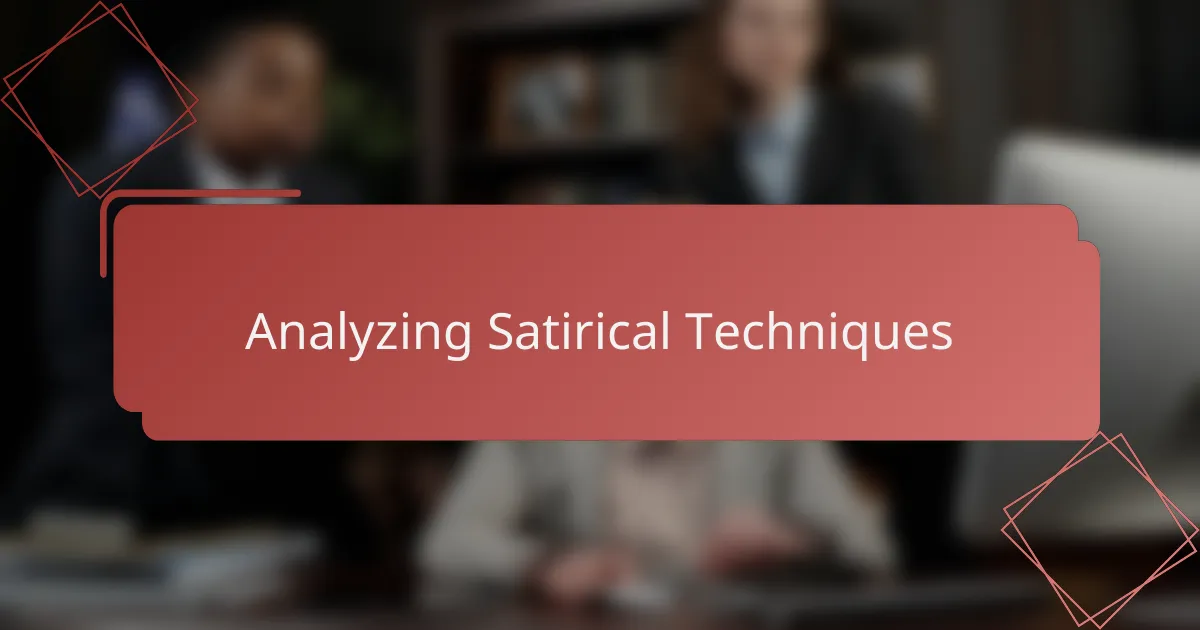
Analyzing Satirical Techniques
What really struck me about the satirical techniques in Last Week Tonight was the masterful use of irony. Have you ever noticed how John Oliver doesn’t just tell jokes but instead twists political realities until they reveal their absurdities? It’s like watching a magician pull back the curtain, showing you the mechanics of deception with a wink and a smile.
Exaggeration, too, plays a huge role in their approach. I remember an episode where seemingly dull statistics were blown up into outrageous scenarios that made me both laugh out loud and cringe. This technique doesn’t just entertain; it makes the message stick by transforming abstract data into something vivid and visceral.
Then there’s the blend of humor with insightful commentary. I often find myself reflecting long after an episode ends, thanks to how the show balances wit and deep research. It’s a clever way to engage viewers emotionally and intellectually, proving that satire can be both funny and profoundly informative at the same time.
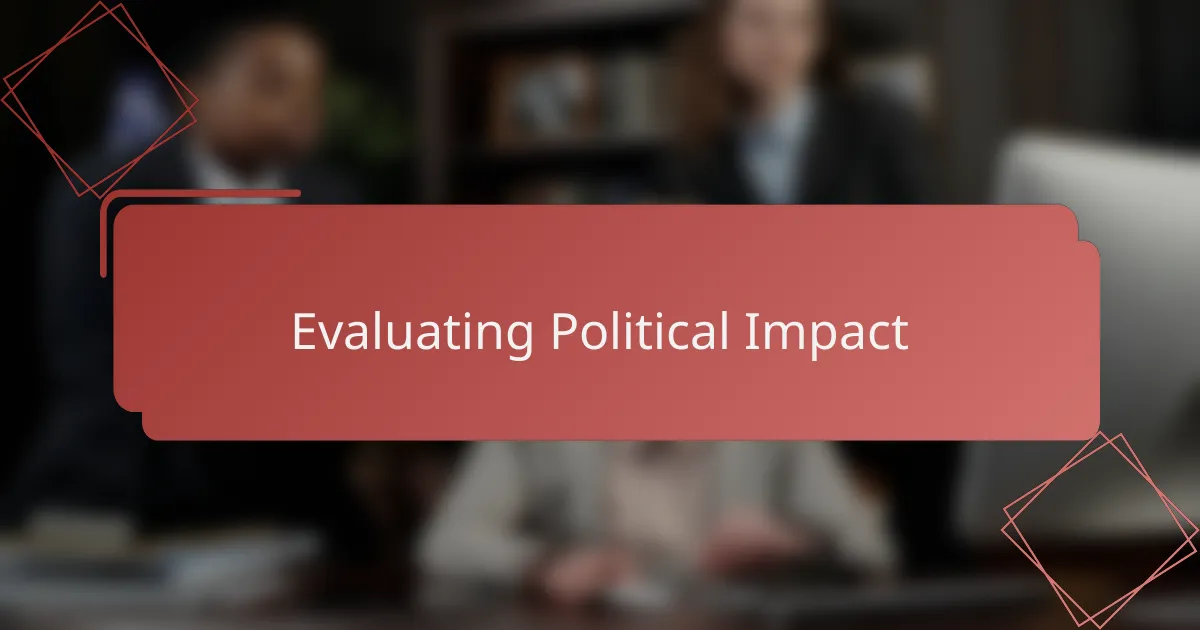
Evaluating Political Impact
When I evaluated the political impact of HBO’s Last Week Tonight, I noticed how the show not only exposes obscure issues but also sparks real-world conversations. I remember discussing with friends how the deep dives on topics like campaign finance made complex political systems feel more accessible and urgent. That sense of clarity is powerful—it’s not just entertainment; it’s a catalyst for civic awareness.
The show’s use of satire cuts through political noise, often prompting immediate public debate and even policy scrutiny. Its influence extends beyond laughs to tangible effects, such as inspiring petitions or legislative hearings. Here are some key facets of its political impact:
– Illuminates underreported political issues with thorough research
– Encourages viewers to think critically about mainstream narratives
– Acts as a trigger for civic engagement and public discourse
– Uses humor to reduce political apathy and increase awareness
– Influences policymakers by spotlighting gaps in governance
– Bridges the gap between complex policy and everyday understanding
This approach makes political satire feel like a meaningful tool rather than just comedy, showing how entertainment can engage and empower citizens.
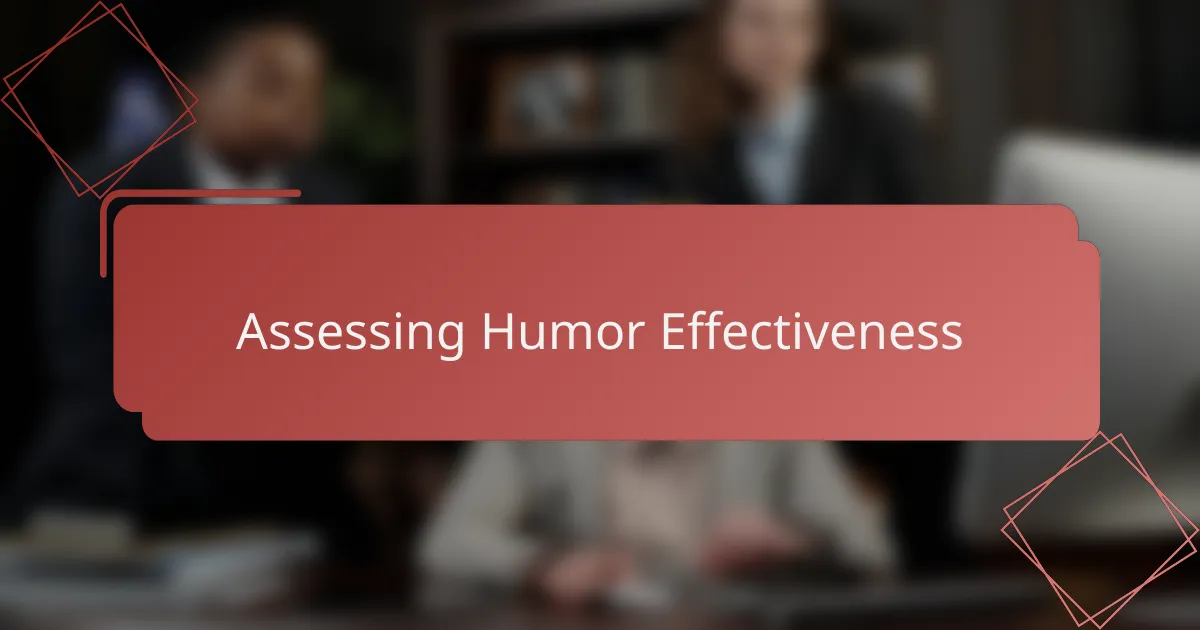
Assessing Humor Effectiveness
Assessing humor effectiveness is always a delicate balance, especially in a show like Last Week Tonight where sharp wit meets serious topics. From my viewing experience, the humor lands best when it cleverly exposes political absurdities without losing the underlying message. Sometimes the jokes hit so precisely that I find myself laughing while also feeling a bit disturbed by the truth they reveal.
| Aspect | Effectiveness in Last Week Tonight |
|---|---|
| Topical Relevance | Consistently high; jokes are anchored in current political events, making them timely and insightful. |
| Satirical Sharpness | Very incisive; John Oliver’s nuance cuts through the noise with clever, layered humor. |
| Emotional Impact | Strong; humor often blends outrage and empathy to motivate audience reflection. |
| Accessibility | Generally accessible; jokes balance complexity with clarity, though some references may challenge casual viewers. |
| Personal Resonance | I often feel both entertained and enlightened, which is a rare and powerful combination in political satire. |
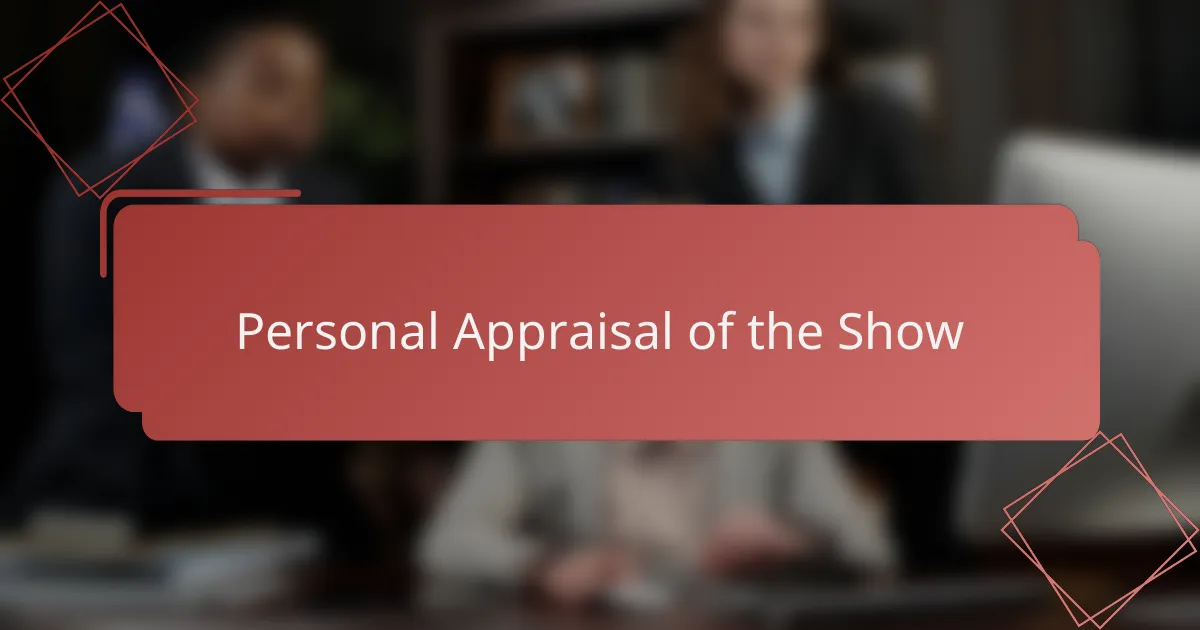
Personal Appraisal of the Show
Personal Appraisal of the Show
When I first tuned into Last Week Tonight, I was struck by its unique blend of sharp wit and thorough research. The show’s ability to dissect complex political issues while making me both laugh and think is something I deeply appreciate. It’s like having a smart friend who doesn’t shy away from tough topics but still keeps the mood light and engaging.
| Aspect | Last Week Tonight |
|---|---|
| Satirical Style | In-depth investigative satire with clever humor |
| Emotional Impact | Balanced – informative yet entertaining, often thought-provoking |
| Approach to Politics | Critical, unbiased analysis with a progressive tone |
| Presentation | Engaging storytelling combined with data and visuals |
| Viewer Connection | Feels like a personal conversation about serious matters |
